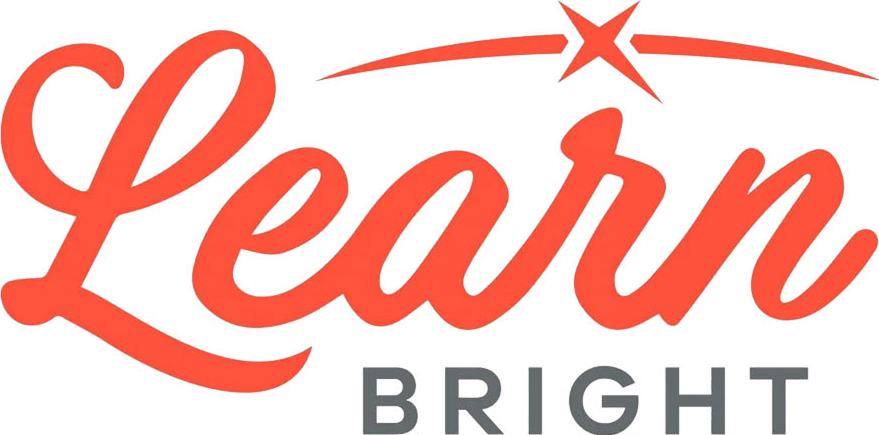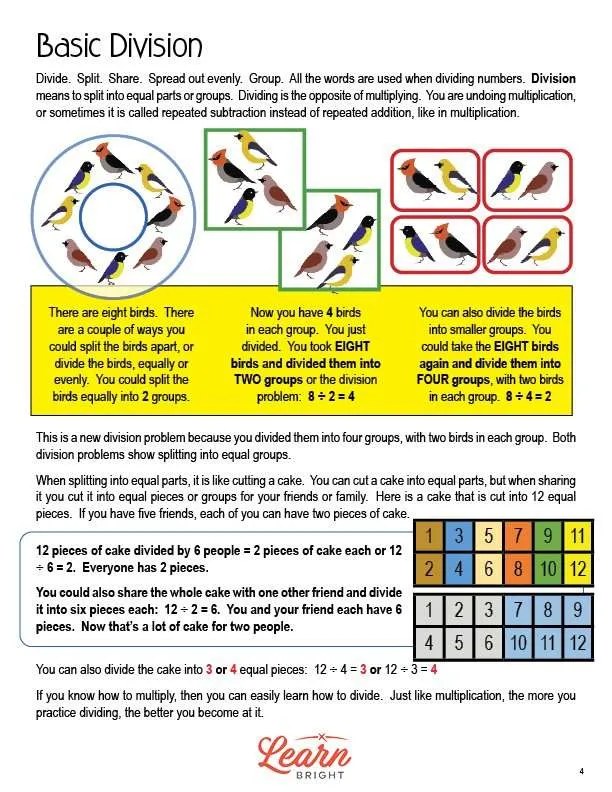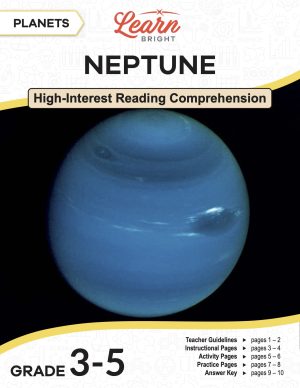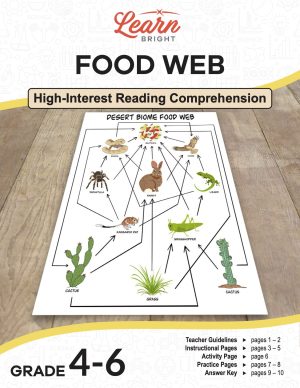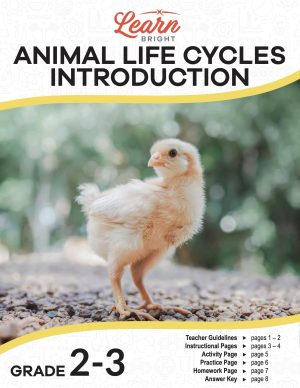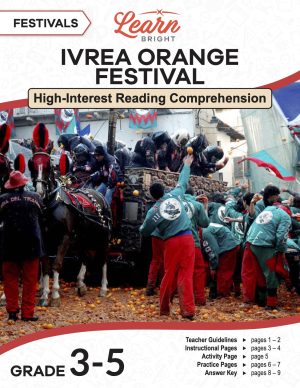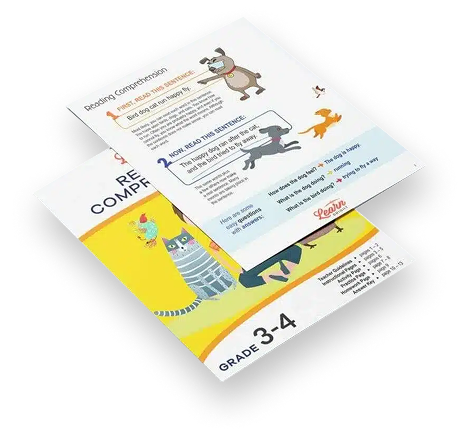Description
What our Basic Division lesson plan includes
Lesson Objectives and Overview: Basic Division introduces the concept of division and prepares students to represent and solve problems involving basic division facts. Using counters, students engage in experiential learning to reinforce the concept of division. At the end of the lesson, students will be able to represent and solve problems involving basic division facts. This lesson is for students in 3rd grade and 4th grade.
Classroom Procedure
Every lesson plan provides you with a classroom procedure page that outlines a step-by-step guide to follow. You do not have to follow the guide exactly. The guide helps you organize the lesson and details when to hand out worksheets. It also lists information in the blue box that you might find useful. You will find the lesson objectives, state standards, and number of class sessions the lesson should take to complete in this area. In addition, it describes the supplies you will need as well as what and how you need to prepare beforehand. The supplies you need for this lesson include chips or other counters, flash cards, and the handouts.
Options for Lesson
Included with this lesson is an “Options for Lesson” section that lists a number of suggestions for activities to add to the lesson or substitutions for the ones already in the lesson. One suggested adjustment to this lesson is to emphasize division properties based on the level of the class. You can also pair stronger students with students who need more help with division facts. Finally, have your students create a poster board size fact family chart and encourage them to hang it on a wall at home.
Teacher Notes
The teacher notes page includes a paragraph with additional guidelines and things to think about as you begin to plan your lesson. This page also includes lines that you can use to add your own notes as you’re preparing for this lesson.
BASIC DIVISION LESSON PLAN CONTENT PAGES
Basic Division
The Basic Division lesson plan includes two content pages. We use many different words when we talk about dividing numbers, including divide, split, share, spread out evenly, and group. Division is when we split something into equal parts or groups. It’s the opposite of multiplying. When you divide, you’re undoing multiplication. We also sometimes call it repeated subtraction (while we call multiplication repeated addition).
The lesson includes an in-depth example using birds. Say you have eight birds and you want to split them apart. There are a few different ways you could do that. You could split them into two equal groups with four birds in each group. This is division! You took eight birds and divided them into two groups. This is the same as the division problem 8 / 2 = 4. You could also divide them into a larger number of smaller groups. You can split the same eight birds into four groups with two birds in each group. This is the same as the division problem 8 /4 = 2. Both of these problems split the birds into equal groups.
You can think of splitting something into equal parts like cutting a cake. When you cut a cake to share it with other people, each piece should be the same size. If you cut a cake into 12 equal parts and wanted to share it between five people, each person could have two pieces of cake. If you wanted to share the whole cake with one friend, each of you would get six pieces of cake (12 /2 = 6). You could also divide the cake into three or four equal pieces (12 / 4 = 3 or 12 / 3 = 4).
Fact Families & Multiplication Tables
An easy way to practice division is to learn the fact families for multiplication and division. The lesson includes a few examples of fact families. If you use a multiplication table, you can make Fact Families for all of the products (the answers to multiplication problems).
Some important words to remember for division include dividend (the number being divided or split by), quotient (the answer in a division problem), and divisor (the number used to divide another number). Dividend / divisor = quotient.
There are four important rules you should remember about division. First, you never divide by zero. Second, zero divided by any number is always equal to zero. Third, any number divided by one is always equal to the same number. Fourth, any number divided by itself is always equal to one.
We can write division problems in multiple ways. The lesson shows three ways to write the division problem 21 / 7 = 3. The quotient in this problem is 3. Remember that you can use multiplication tables and fact families to help you learn division. Once you learn, you’ll always remember!
BASIC DIVISION LESSON PLAN WORKSHEETS
The Basic Division lesson plan includes three worksheets: an activity worksheet, a practice worksheet, and a homework assignment. You can refer to the guide on the classroom procedure page to determine when to hand out each worksheet.
COUNTERS ACTIVITY WORKSHEET
Students will work with a partner to complete the lesson activity. Each pair will use counters to solve each of the given division problems. The worksheet gives them the dividend and divisor, and they must find the quotient. Each pair will also find the missing numbers in each of the Fact Families listed, using counters if they need help.
Students can also work alone to complete the lesson activity.
BASIC DIVISION PRACTICE WORKSHEET
The practice worksheet asks students to first answer a few questions about division. They will also solve 30 division problems.
FIND THE QUOTIENT HOMEWORK ASSIGNMENT
For the homework assignment, students will find the quotient for each division problem on the worksheet.
Worksheet Answer Keys
This lesson plan includes answer keys for the activity worksheet and the homework assignment. If you choose to administer the lesson pages to your students via PDF, you will need to save a new file that omits these pages. Otherwise, you can simply print out the applicable pages and keep these as reference for yourself when grading assignments.
